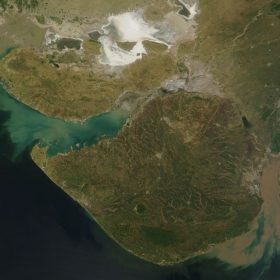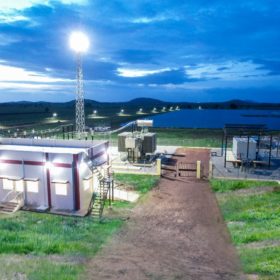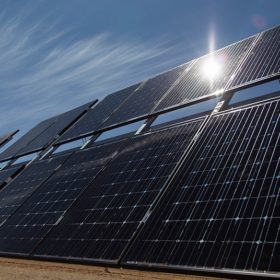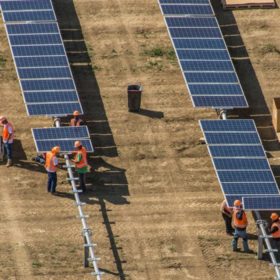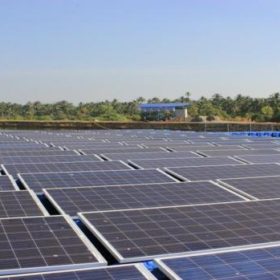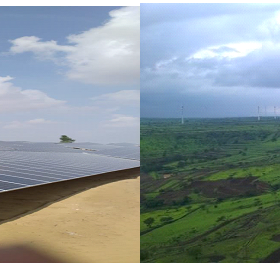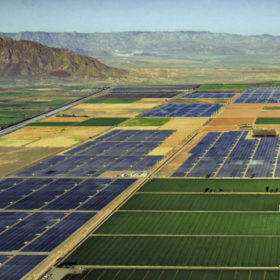NTPC’s 56 MW Kawas solar project now fully operational
NTPC has switched on its third solar project this month, following the completion of the 296 MW Fatehgarh and 250 MW Kolyat PV parks in Rajasthan.
Greenko to develop 400 MW of wind, solar for Hindalco’s aluminum smelter
Renewables major Greenko will develop 375 MW to 400 MW of solar and wind capacity to power Hindalco’s aluminum smeltering operations in Odisha. It will back the renewables generation with hydro pump storage capacity in Andhra Pradesh to ensure 100 MW of round-the-clock supply to Hindalco.
Rays Power Infra switches on 150 MW solar plant in Karnataka
Rajasthan-headquartered Rays Power Infra has commissioned a 150 MW (DC) solar plant in Raichur and Koppal, Karnataka.
Study finds 100% renewables would pay off within 6 years
New research from Stanford University researcher Mark Jacobson outlines how 145 countries could meet 100% of their business-as-usual energy needs with wind, water, solar and energy storage. The study finds that in all the countries considered, lower-cost energy and other benefits mean the required investment for transition is paid off within six years. The study also estimates that worldwide, such a transition would create 28 million more jobs than it lost.
Shell completes acquisition of Sprng Energy
Shell has completed the $1.55 billion acquisition of Solenergi Power, an Actis company holding 100% of Indian renewables developer Sprng Energy.
World could install 250 GW of solar this year, claims Bloomberg analyst
Rob Barnett, a senior clean energy analyst for Bloomberg, forecasts a 30% increase in global PV deployment this year, and double-digit growth through 2025.
India installed 8.4 GW of solar in H1
India is expected to install 20 GW of new solar capacity in 2022, according to JMK Research.
NTPC’s 296 MW Fatehgarh solar project goes fully online
The state-run power generator has declared its 296 MW Fatehgarh solar project in Rajasthan is now fully operational, following the commissioning of its last-part capacity of 48.8 MW recently.
Tata Power switches on 225 MW hybrid project
The hybrid renewable energy project will supply power to Tata Power’s Mumbai distribution company under a 25-year power purchase agreement.
US to extend Investment Tax Credit for solar at 30% to 2032
As written in the Inflation Reduction Act of 2022, the tax credit will begin at 30% and step down to 26% in 2033 and 22% in 2034.
